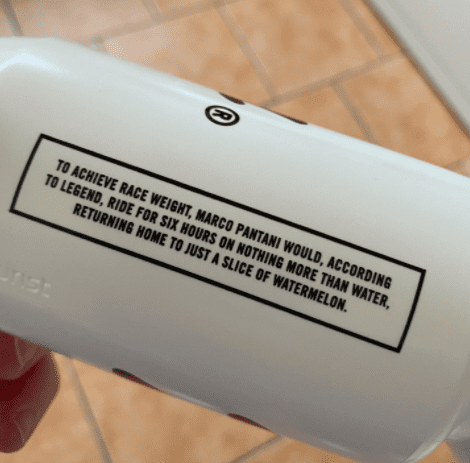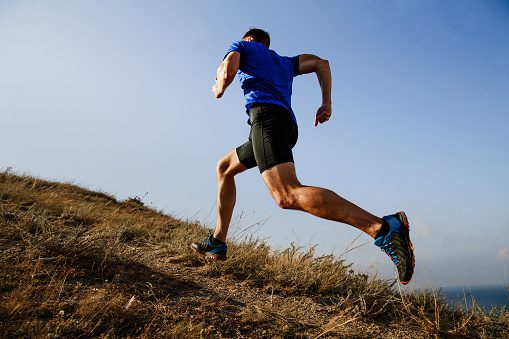Water bottle branding perpetuates eating disorder culture in endurance sport
Runners aren't happy with the messaging on a water bottle which encourages fuelling exercise with water and a single slice of watermelon

Cycling company Rapha is one of the premier brands in the sport, known for cool and minimalist gear. However, a water bottle of theirs with a worrisome message has been circulating Twitter over the past week. The white bottle seems innocent from the front, but turn the bottle over and you’ll read, “To achieve race weight, Marco Pantani would, according to legend, ride for six hours on nothing more than water, returning home to just a slice of watermelon.” This is not the kind of messaging that young athletes, or any athlete, should receive.
RELATED: How food guilt can lead to a stress fracture
https://twitter.com/DaveStandard/status/1288511161957257216
Endurance sport is riddled with eating disorders. In a year when runners have finally come forward about the culture that exists within our sport, it’s unfortunate that a cycling brand continues to perpetuate this kind of messaging.
Jennifer Sygo is a registered dietitian and sports nutritionist who works with Athletics Canada, among other sporting organizations. She was interviewed about the prevalence of eating disorders in November 2019 and pointed out that across endurance sport there’s a 30 to 50 per cent rate of signs and symptoms of RED-S (relative energy deficiency) in athletes. “These are things like menstrual disruptions, disordered thoughts and stress fractures,” she said. “This all exists in non-endurance sport as well, but it’s certainly more common in sports like distance running.” This means that up to one in every two endurance athletes will experience disordered eating – they don’t need their water bottle to encourage it.
As a 15 year old athlete I also underfuelled to be a ‘better’ athlete. As an 18 year old athlete I had osteoporosis and multiple stress fractures. Maybe that should go on a bottle. https://t.co/1eUXa9HwyM
— Sian Edwards (@Sian_ed88) August 6, 2020
In a thread that’s garnered hundreds of replies, one runner tweeted, “As a 15-year-old athlete I also underfuelled to be better. As an 18-year-old athlete I had osteoporosis and multiple stress fractures. Maybe that should go on a bottle.”
The comments on the thread also revealed many men who said they’d engaged in disordered eating.

Men are notoriously unlikely to report or admit to dealing with an eating disorder, but they experience eating disorders at almost the same rate as women. Although male athletes will not lose their period, they can be at risk of low energy availability, bone loss, and hypogonadotropic hypogonadism (low production of sex hormones). A study in Sports Medicine Journal found that male endurance athletes can experience parallel symptoms as females diagnosed (with the exception of menstrual disruption), with bone stress injuries as the most common symptoms. The triad of symptoms for males involves the interrelationship of energy availability, bone health, and hormonal function.
RELATED: Disordered eating: just as serious as an eating disorder
An anecdote on a water bottle can seem innocent, but when put into the broader context of eating disorders in endurance sport, it becomes a dangerous message.
The company has responded to the backlash from the water bottle messaging, saying, “I wanted to thank you for bringing the bottle to our attention, and to let you know that Rapha regrets including this text on the bottle. Rapha’s team is working to get this sorted as soon as possible. We’re looking into both options of removing the line from the current bottles we have produced as well as how we could recycle these to avoid just having the plastic go to waste. Future bottles will not bear messages like this.”


